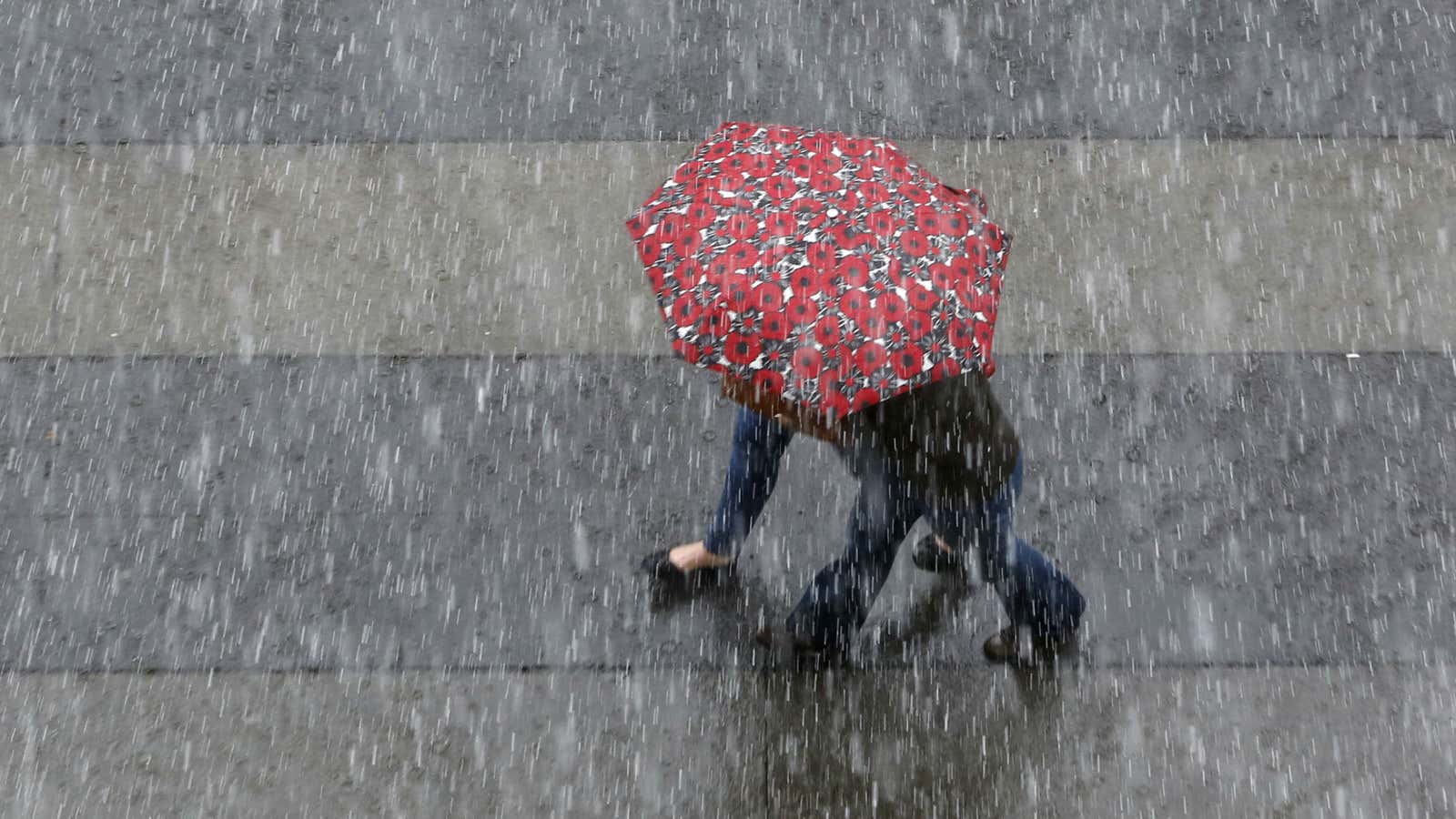Washington, DC
This spring on the east coast of the US, it feels like we’ve lost touch with the sun. In Washington, DC, 14 of the first 17 days of May were rainy; the others have been overcast and drab for at least part of the day. Which means that for me, May has been one of the months I’ve felt the sleepiest—despite getting to bed at a reasonable hour most nights.
While there’s no definitive research showing that rain and feeling tired are related, there’s some evidence that drab weather can hit almost all of our senses in a way that cues us it’s time for a nap—or at least makes it harder for us to wake up from our slumber the night before.
First, there’s what we see—or rather, what we don’t. Sunlight triggers our bodies to stop producing the hormone melatonin, which makes us sleepy at night. When it’s raining and skies are overcast, we miss out on our body’s internal alarm clock. As Naomi Rogers, a chronobiologist from Central Queensland University, told the Sydney Morning Herald, when you don’t see the sunlight first thing in the morning, your body never gets the cue that it needs to shift into daytime mode.
That earthy smell of rain can be soothing, too. Plants secrete oils during dry periods, possibly to stop seeds from developing when there aren’t enough resources for them to thrive. When it rains, the water brings out the accumulated oils and they mix with a chemical called geosemin, which is produced by soil bacteria, to create a “musky” smell, as Bill Ypsilantis, a soil condition and health specialist at the Bureau of Land Management, told NPR. “You’ll also smell that when you are in your garden and you’re turning over your soil,” he said.
Additionally, after a thunderstorm there’s a chance you may smell ozone, a molecule made of three oxygen atoms. It’s generated when lightning interacts with the air, breaking up and recombining oxygen molecules with two atoms into chains of three instead. Some compare its odor to the pungent smell of chlorine and others to bleach or clean bedsheets.
Rain sounds are also comforting. The rhythmic pitter-pattern of rain hitting a roof, umbrella, or the ground below is called “pink noise.” Pink noise is a category of background noise that, like white noise, has all of the frequencies that humans can hear, ranging from 20 Hz to 20,000 Hz. Unlike white noise, which has the same volume at every frequency, pink noise has lower volumes at higher frequencies, which according to some research may improve (pdf) our quality of sleep by decreasing our brain activity. (You can listen to an hour of rain on a window here, if you’re so inclined to test it out.)
The difficulty in waking up, the fresh, earthy scents, and the tranquility of the rain tapping on windows are enough to make anyone want to retreat to bed for the day. Sadly, none of this evidence is enough to justify doing so; but it can at least explain why you may feel a little lethargic on these overcast days.
We at Quartz are insatiably curious. We bring you the best timely research in science and technology, but in Funny you should ask, we’ll tackle timeless questions. If you have some, please submit them here.




